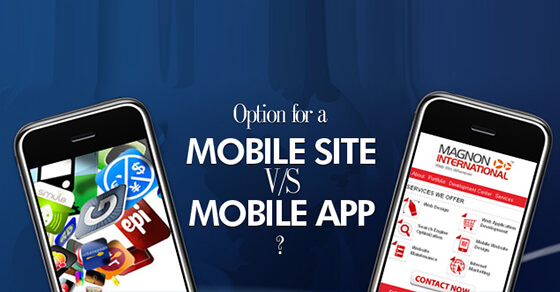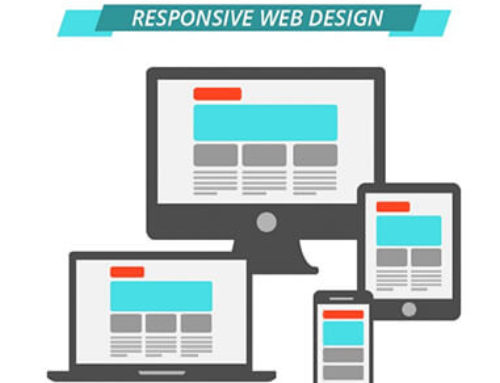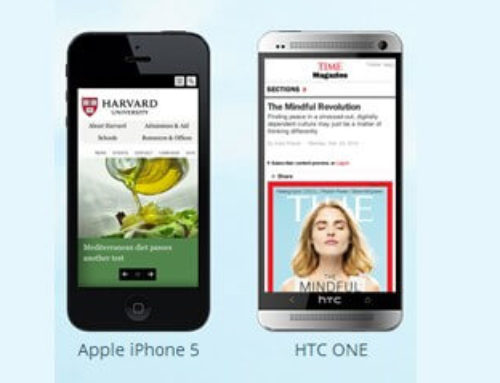“Planning to go mobile?” “Yes.” “So, it’s an App or a Website?” “Question Mark”
Today, when the App Stores on almost every OS are flooded with inestimable applications of every type, it is acceptable to understand that every organization will be willing to develop one. But for once, sit back and ponder, is mobile application the only resort for reaching out the masses? Is it really going to boost your sales or is just another cost enhancer? Isn’t there any other viable option that you can opt for?
Well, if you take a sneak peek through the clouds, another alternative that will be visible to you is that of a mobile website. Although the two might appear the same at the first instance, checking the right box is quite a task. A considerable amount of time need to be dedicated to factors such as the prime intention, your target audience, affordability, etc.
Mobile Website vis-à-vis Mobile Application
While both can be accessed from handheld smart devices viz. Android phones, Blackberry devices, Apple products, etc., the user manual for the two can vary significantly.
A mobile website accessed through WiFi, 2G, 3G or 4G networks is pretty much similar to the one appearing on desktops in so far as it contains browser-based HTML pages comprising of textual content, images, video and other media, etc. The only distinguishing feature being the size specific look and feel of it including mobile specific specs like location detector and calling feature.
On the other hand, applications are stuff that are required to be downloaded and installed on the handheld devices before finally using them. Like for e.g. users might want to visit the Apple’s App Store from their iPhone, or the Play Store from Android devices or the App World in case of Blackberry products. The data and content available on these apps can be used in online or offline mode (if the download data option is provided).
Hands up for App or Mobile Website?
The determining factor between the two options, mobile application or mobile website depends on the ultimate target to be achieved. If you are into the gaming industry, obviously developing the gaming app is the best and probably the first task at hand. Similarly, if providing data and content on the go is at your to-do list, mobile website is the answer for you. You may also come across situations where you are in for both, developing the app and designing the website. In cases of such dilemmas, an advisable way forward is to first create the website and then move ahead with the application part. To say the least, mobile website is like the first milestone to be achieved in creating a mobile presence and the application comes in later where you have a specific vision which only the app will be able to achieve.
Benefits of Website over Application
Where sheer publicity and creating a market presence are the motivating factors, mobile website seems the first logical step forward due to its coherent advantages over the application in terms of wider reach, easy access and cost benefits.
- Instant access:
Just one input on the browser and the mobile website will fire up across all the devices, whereas the application is required to be downloaded and installed from the respective store in order to view its content. This can act as a prominent barrier in terms of customer engagement.
- Compatibility:
Once the interface of the mobile website is ready, it need not be revamped to make it device specific. Also, the URLs of your mobile website can be integrated into other tech specifics like SMS, QR Codes and NFC (near field communication). Applications suffer from this major disadvantage that you will have to develop a different version for each, Android, Apple, Blackberry, etc.
- Upgradation:
The flexibility of Upgradation enjoyed by a website cannot be credited to the application. Once you are ready with the newer version, the only job remaining is to publish it and the revamped website will be online. But in case where you intend to modify the contents or the interface of an app, it is time consuming and costly as it will have to be taken across all platforms. Again, this newer version will have to be downloaded by the user to access it. This can act as a hindrance to retaining the interest of the users.
- Easy to Search and Share:
Another benefit of a mobile website is the quickness with which it can be located. From search results to directories, they can be mentioned all over to attract maximum attention. While on the other hand, applications can be limited only to the app stores of the respective manufacturers. Also, sharing a mobile website via email, text message, blogs, print media or social media seems easy and quick compared to the sharing ability of an application.
- Limited Life:
If research material is to be trusted, an average life span of an app is restricted to about 30 days unless the app is about something that falls within the daily usage of the user. In other cases, they have to sit in the recycle bin more than often but this cannot be the case with mobile websites. A mobile website cannot practically be deleted by any end user.
- Website can be an App but not vice versa
With the growing demand of creativity, the designing world has come a long way. A website can easily be transformed to act and look like an application, while vice versa may not be possible due to practical and technical constraints.
- Time and Money
As highlighted earlier, developing an app for every OS can make bigger holes in your pocket compared to the ones made while designing a mobile website. Also, time is a constraint. Designing one website will be any day faster than creating 3 to 4 versions of an application. Also, this is not a onetime investment. They have to be revamped and redeveloped depending upon the trends and time in the industry.
So when to develop an App?
Despite the factors mentioned above, you will not help but notice that the app worlds across all platforms are cluttered with innumerable apps. So, are these organizations over-estimating their resources? Not really.
- Game World:
So, if you are in the gaming industry and have to create awesome interactive features (like Candy Crush), a mobile website will never fetch you the same number of audience as an app can in this case.
- Routine usage:
If you are developing something that the user will require on a daily basis, he will never possibly delete the app any soon.
- Calculations, Charts, Reports:
Another example where app will do better than mobile website is the case where complexity in terms of calculations or reporting is involved on a larger scale.
- Access to personal features:
Say for example, you are willing to access the user’s camera, his location or provide an immediate calling feature, website will be a big No for you. Only an app will be able to guide you in such cases.
- Data charges:
Of course, there will be cases where the user will avoid accessing a particular website from his handheld or otherwise, when he is running low on internet data. In such cases, if an offline mode via pre downloaded data access, if provided to the users through the application, they will be more than happy to download your app and also upgrade, when necessary.
Conclusion:
So basically, depending upon the final goal, the decision should be taken by any organization. Where name along with fame is the idea, a creative looking vibrant mobile website should serve the purpose. But when interaction and personalization is the contention, the decision should be in favor of a mobile application.
Questions?
Feel free to contact us, if you have required any type of information or suggestions related to an app or a mobile website.








 Education
Education
